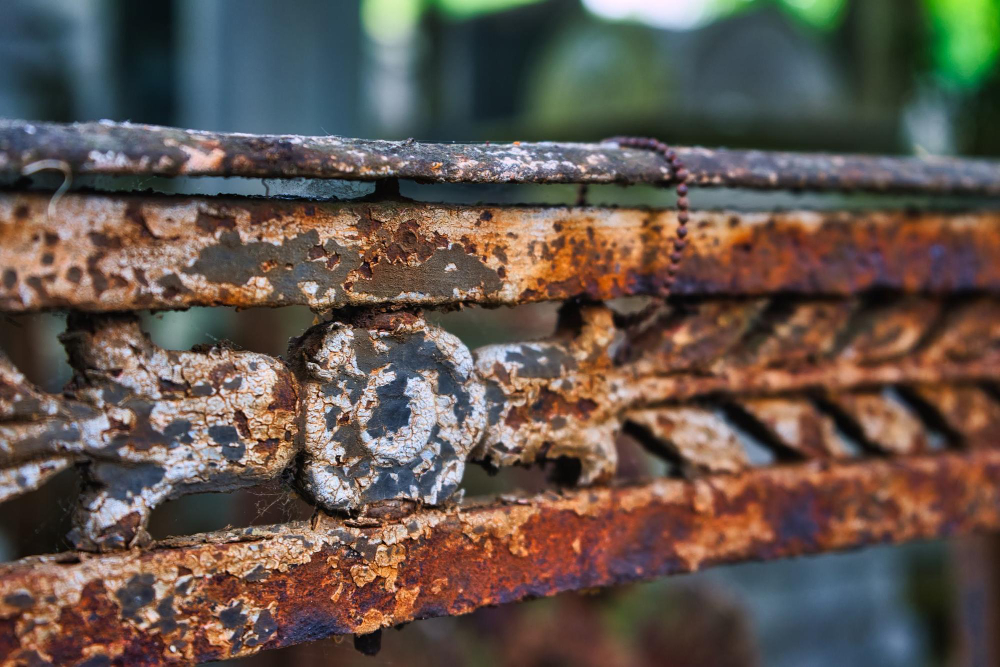Discover the Key to Corrosion Prevention with an Expert Training
CORCON Institute of Corrosion, founded in 2014, is one of the premier organizations to promote corrosion awareness, protection, and control in India. CIC has designed a comprehensive training program on important aspects of corrosion management into ten well-defined units. The following article details each unit, showing why professionals should attend CIC’s programs.
Unit 1 – Roles and Responsibilities
Effective corrosion control starts with understanding the specific roles of all stakeholders. From project managers to inspectors and applicators, clear defined responsibilities ensure smooth operations and reduce misunderstandings. Collaborative teamwork, coupled with strong leadership, is essential to achieving project objectives and minimizing risks associated with corrosion.
Unit 2 – Terminology and Methods
Corrosion management is a highly technical field, requiring familiarity with its terminology. Mastering the language of corrosion enhances communication among professionals, enabling better decision-making. Additionally, understanding methods like cathodic protection, galvanisation, and coating systems provides the foundation for implementing effective corrosion prevention strategies.
Unit 3 – Safety
All activities regarding corrosion management must ensure safety. Workers should be given the right personal protective equipment (PPE) for protection against hazardous chemicals and environmental factors. Regular drills and adherence to safety procedures are essential in developing a safe and efficient work environment.
Unit 4 – Jobsite Layout
An organized jobsite layout is important to optimize productivity and ensure safety. Proper zoning of work areas for equipment, tools, and materials reduces clutter and enhances operational efficiency. Identifying potential hazards such as debris or chemical spills further ensures a safe workspace for all personnel.
Unit 5 – Containment
Containment systems play a very important role in preventing the spread of contaminants during surface preparation and coating applications. The use of tough containment materials and regular inspections for wear and tear are also important. Good containment is not only a means of environmental compliance but also of maintaining the quality of the surrounding areas.
Unit 6 – Surface Preparation
Surface preparation is a basic step that determines whether corrosion prevention will be a success or not. Determining the condition of the surface—whether it is rusty, greasy, or covered with old coatings—is critical. Techniques such as abrasive blasting, power tool cleaning, and hydro-jetting prepare surfaces for optimal coating adhesion and longevity.
Unit 7 – Coating Types and Characteristics
Choosing the right coating type is essential for durability and effectiveness. The choice of coatings should take into account environmental factors, including temperature, humidity, and exposure to chemicals. Understanding the properties of epoxy, polyurethane, and zinc-based coatings allows professionals to tailor solutions for specific applications.
Unit 8 – Coating Handling and Application
Proper handling and storage of coatings are equally important as the application of coatings. Manufacturer guidelines need to be followed so as not to contaminate or degrade the product. At the time of application, spraying, brushing, or rolling should be applied evenly so that no pinholes or uneven coverage may result.
Unit 9 – Coating Inspection and Defects
Inspection ensures that coatings are applied in the right manner and in quality. Techniques such as dry film thickness measurement, adhesion testing, and holiday detection help identify defects such as cracks or pinholes. Regular inspections during and after application improve overall quality and minimize costly rework.
Unit 10 – Preparation Before Beginning Work
Preparation is key to successfully executing any corrosion control program. In the planning aspect, it would involve such things as resource allocation, risk assessments, and other kinds of preparation to ensure preparedness before actual work implementation. Checking on the different tools, equipment, and trained personnel available would save on time and avoid delays from project implementation.
Why Attend? The Benefits of Attending CIC Courses
In-Depth Knowledge: What CIC’s training does with its corrosion science, prevention methods, and modern coating techniques.
Practical Application: Hands-on training enables participants to apply the acquired knowledge to real-life challenges immediately.
Career Advancement: Certification from CIC enhances professional credibility, providing an opportunity for better career opportunities in the field.
Industry Networking: The courses enable professionals to interact with industry leaders and experts, providing an opportunity for valuable connections.
Environmental Impact: By learning advanced corrosion control methods, participants contribute to sustainability by reducing waste and extending the life of structures.
Frequently Asked Questions
What is the CORCON Institute of Corrosion (CIC)?
The CORCON Institute of Corrosion (CIC) was established in 2014 to promote corrosion awareness, protection, and control in India. It provides comprehensive training programmes on corrosion prevention, surface preparation, coating application, and more.
Who can benefit from CIC’s training programmes?
CIC’s courses are designed for professionals in construction, engineering, oil and gas, and other industries dealing with corrosion challenges. Beginners looking to start a career in corrosion control can also benefit.
What are the key topics covered in CIC’s courses?
The courses cover essential units such as roles and responsibilities, surface preparation, coating application, inspection techniques, safety measures, and containment systems.
Does CIC offer certification upon course completion?
Yes, CIC provides industry-recognised certifications upon successful completion of their training programmes, adding credibility to your professional profile.
Closing Insights
Attending CIC’s comprehensive courses equips you with the skills and knowledge to excel in corrosion management. Whether you’re a beginner or a seasoned professional, CIC’s programmes are tailored to meet your needs. Be part of the journey towards a corrosion-free future! For more information, visit the CORCON Institute of Corrosion and elevate your expertise today.
Image Reference : Freepik
Disclaimer: All trademarks, logos, and brand names are the property of their respective owners. All company, product, and service names used in this website are for identification purposes only. Use of these names, trademarks, and brands does not imply endorsement.

